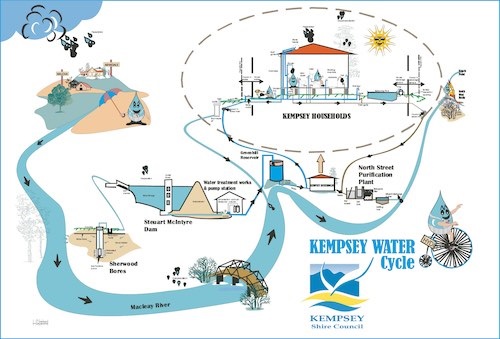Kempsey Shire has five stages of water restrictions. Staged water restrictions are imposed when Macleay River flows at rates below certain percentile bands. A flow percentile band is the percentage of time for which the river flows at a given rate. This rate is based on historically recorded figures.
The Kempsey water cycle relies on the flow of the Macleay River. The flow of the river is governed by rainfall in the upper Macleay catchment area, the area around Armidale and Walcha. Heavy rainfall in the Kempsey Shire does not necessarily mean a high river flow and no water restrictions.
No matter what level the water restrictions are at, Council needs your help to manage water, whether you are a resident or a visitor. Being water-wise means:
- understanding the local Kempsey water cycle
- not wasting water or taking it for granted
- protecting our valuable water supplies so they are sustainable.
For more information, visit our Water restrictions page or view the Kempsey Water Cycle:

View full size image